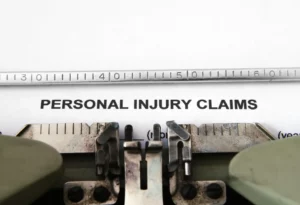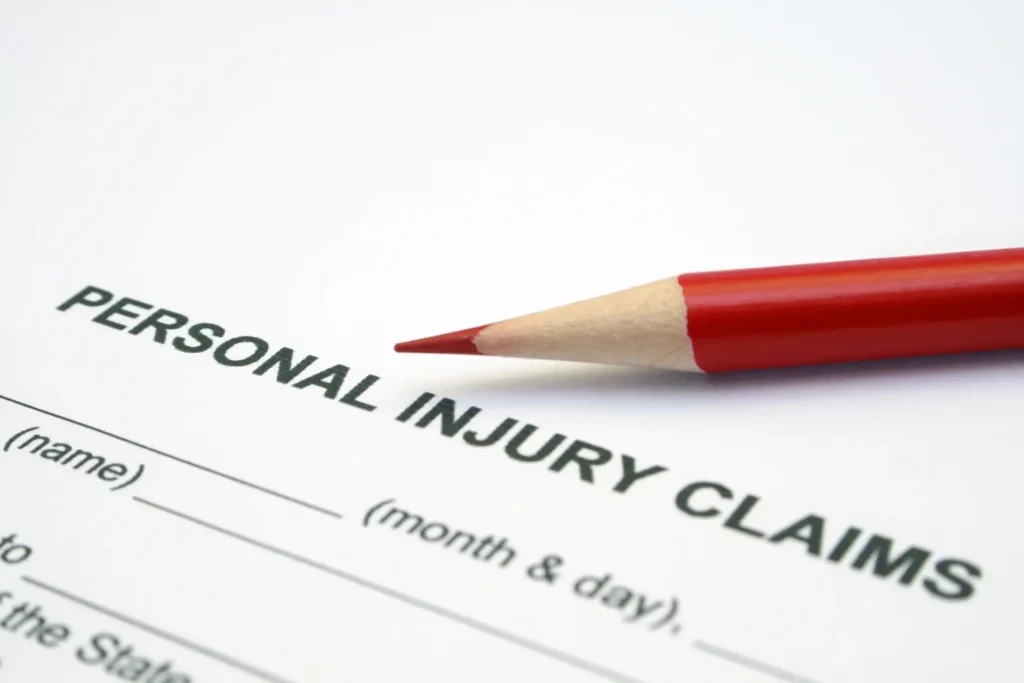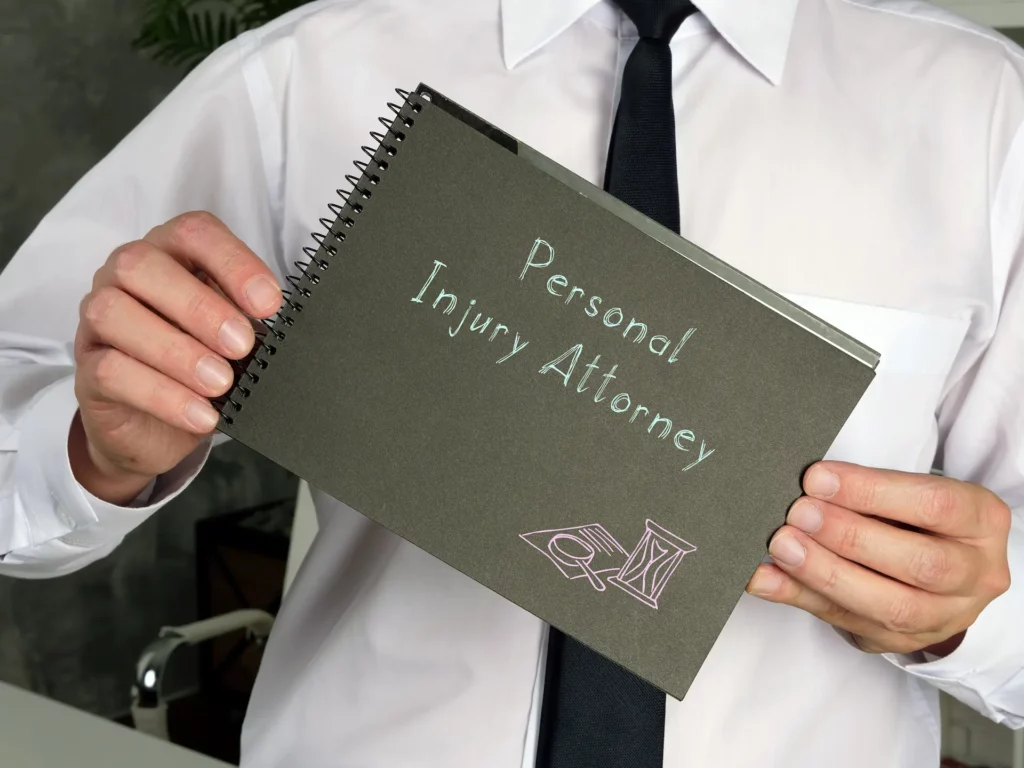Navigating Personal Injury Claims in Houston

Have you been injured in an accident in Houston and don’t know what to do to get the compensation you deserve? Maybe it was a car accident, a workplace accident, or a defective product.
If you have been injured due to someone else’s negligence, it is important to seek the assistance of an experienced personal injury lawyer who can provide guidance throughout the legal process. Throughout the legal process, a personal injury lawyer or attorney plays an essential role in helping individuals who have suffered from physical, emotional, or psychological injuries.
In this article, you’ll learn some of the basics about personal injury claims, including how to find the right lawyer for your case, and more. Read on to discover the secrets of successful personal injury claims in Houston.
What is a Personal Injury Claim?
Personal injury claims arise when someone suffers harm from an incident or injury caused by the negligence or wrongful act of another person or entity. Personal injury claims can be resolved through settlement pre-litigation (before a lawsuit is filed) or after a lawsuit has been filed through either settlement or trial.
What are the Most Common Types of Personal Injury Cases?
Several instances can give rise to a personal injury claim. Here, we’ll take a look at some of the most common types:
- Road traffic accidents involve injuries caused by collisions between vehicles, pedestrians, motorcyclists, or cyclists on roads.
- Workplace accidents can result in injuries suffered by employees or contractors while performing their duties at work, such as falls, heavy equipment accidents, machinery accidents, fires, or explosions.
- Premises liability cases involve injuries caused by an unsafe or defective condition on a premises or property, such as dangerous floors, broken stairs, or inadequate lighting.
- Wrongful death involves injuries resulting in a person’s death due to negligence or the wrongful act of another person or entity. Fatalities happen all too often as a result of truck accidents, workplace accidents and defective products.
- Product liability claims are based on injuries caused by a defective product. Product defects can include a design defect, manufacturing defect, and/or marketing defect due to inadequate warnings. Examples include automobiles and recreational vehicles with defective seatbelts, airbags, tires and autopilot systems.
If you have been injured due to someone else’s negligence or because of a defective product, you may have the right to compensation under the law for your medical care expenses, lost income, pain and suffering, impairment and other damages. Consult a qualified and experienced personal injury lawyer to discuss your legal options and rights.
Negligence in Personal Injury Claims
Negligence plays a significant role in personal injury claims in Houston and throughout the state of Texas. A personal injury claim arises when an individual suffers harm due to another person’s negligence. This refers to the failure to exercise reasonable care, resulting in foreseeable harm to others.
Proving negligence in a personal injury claim involves demonstrating four key elements:
- Duty of care: The person who caused you injury had a duty to act – or not act – in a certain way towards you. Drivers have a duty to follow traffic laws and avoid collisions, and property owners have a duty to keep their premises safe from unreasonably dangerous conditions.
- Breach of the duty: The defendant breached their duty by failing to exercise ordinary care. For example, a driver who runs a red light or a manufacturer who improperly assembles its product.
- Causation: This means that the defendant’s breach of duty proximately caused the injuries and damages. Proximate cause consists of two elements – cause in fact and foreseeability. Cause in fact means the breach duty actually caused the harm. And the foreseeability element means that a person using ordinary care would have foreseen that the event, or some similar event, might reasonably result therefrom. In sum, one must prove that it was foreseeable that an injury could happen as a result of the breach of duty.
- Damages: You suffered actual damages or losses as a result of the incident or injury. Examples include medical bills, lost wages, pain and suffering, physical impairment, mental anguish, disfigurement, and potentially more.
If you can prove these four elements, under Texas law you have met the elements to recover money damages from the defendant or their insurance company. The process can be challenging and complex, and the defendant will usually dispute their liability as well as the extent of your damages. That’s why it is best to consult with experienced personal injury lawyers to guide you through the process.
Step by Step: How to File a Personal Injury Claim

Although all cases are different and they have their unique challenges or complications, the general steps in filing a personal injury claim include:
- Seek medical attention
First and most importantly, get the medical care you need for your injuries. You have an obligation to yourself, as well as under the law to mitigate your damages, to get the medical treatment you need. In addition, medical providers will document your injuries and treatment, and those medical records will be evidence to support your claim. - Hire an experienced personal injury attorney
Find a qualified and reliable personal injury attorney to handle your case. They will advise you on your legal rights and options, gather evidence, build your case based on the evidence and law, communicate with the insurance company, and represent you in court when necessary. - Collect evidence
You and your attorney should collect as much evidence as possible to support your claim. This may include medical records, police reports, witness statements, photos, videos, and other relevant documents and information. - File a claim with the insurance company
Your attorney will file a claim with the defendant’s insurance company. This claim will include a summary of the facts, evidence that supports the claim, the legal basis for your claim, your damages, and the amount of money you seek. - Negotiate a settlement
The insurance company may offer you a settlement to resolve your claim without going to trial. Keep in mind that their goal is to pay you as little as possible, or nothing at all. Your attorney will have your best interest in mind and will focus on trying to get full justice for you. In sum, your attorney will negotiate with the insurance company for the best possible outcome for you. If you accept the settlement offer, you will sign a release form and receive payment. - File a lawsuit
When you and the insurance company cannot agree on a settlement, your attorney may file a lawsuit against the people or entities responsible for your injury. This starts the litigation process including discovery, mediation, and trial. At trial, both sides present their evidence and arguments to the judge or jury, who will decide the outcome of your case.
Every personal injury claim is different and the time to resolve each claim will vary. Some can take as little as several weeks or months, while others can take 1 to 2 years or more.
Factors Affecting Personal Injury Claim Settlements
Personal injury settlements can vary widely depending on the specific circumstances of each case. Some of the factors that can affect the amount of compensation you may receive are:
- The severity of your injuries: In sum, the more serious and permanent the injuries, the greater the value of your damages.
- The disruption of your life: If you have suffered significant injuries and can no longer do the things that are important to your quality of life, such as going to work, earning income, doing things with your family and friends, enjoying hobbies, and more, these are also damages you can claim in your case.
- The cost of medical treatment and recovery: The more medical care you require because of your injuries, the greater the damages.
- The certainty of liability: If you have a clear liability case meaning the other party was clearly at fault for the incident and your injuries, this will strengthen the value of your case.
- Comparative negligence: This means that the responsibility for causing an incident or injury is shared among the parties involved, and their percentage of fault reduces the compensation each party can receive. In Texas, you can recover damages from a defendant only if the percentage of your fault is less than 50%.
The factors outlined above can affect personal injury settlements in Houston and throughout Texas. Every case is different and evaluation by an experienced personal injury attorney can inform you of your rights, likelihood of success, and potential range of values for your claim.
Common Challenges in Personal Injury Claims
Getting the compensation you deserve isn’t always guaranteed in personal injury claims. Challenges associated with this process may affect the outcome of your case. Here’s a look at common ones:
- Proving negligence: This is a personal injury claim’s most important and most challenging aspects. You must show that the defendant had a duty of care, breached that duty, and thus caused your injuries and damages.
- Dealing with insurance companies: Insurance companies will try to minimize or avoid paying your claim by using various tactics, such as delaying, denying, or lowballing your claim. They often request excessive, unnecessary information or documentation to frustrate a claimant in attempt to pressure or frustrate you into accepting a quick settlement that is less than you deserve.
- Calculating damages: A personal injury claim will involve various types of damages. Understanding what they are, how to prove them, and then calculating the damages requires experience in handling these type claims. Otherwise, you will likely receive less than what your case is really worth.
- Statute of limitations: A personal injury claim in Houston must be filed within a certain time limit. In Texas, the statute of limitations is two years from the date of the incident or injury. This is a general rule and each case is different, which means it is essential to consult with an experienced personal injury lawyer to determine exactly what is the statute of limitations for your case. If you do not file your claim within the correct statute of limitations period you will lose your right to compensation.
- Comparative negligence: Texas uses a modified comparative negligence rule which means that if you were 50% or more at fault for the incident or injury, you cannot recover any damages.
Hiring a Personal Injury Attorney

There are thousands of personal injury lawyers in Texas, so what qualities should you look for when choosing one? You need to find a competent, professional, and trustworthy attorney. What you should look out for:
- Experience: This is essential. You need to find a personal injury attorney who has handled cases similar to yours and has a track record of success
- Reputation: They should have a good reputation in the legal community and among their past clients
- Communication: Your attorney must communicate clearly and honestly with you
- Compassion: A compassionate attorney who cares about you and your case will treat you with respect, empathy, and dignity
- Contingency fee: You should look for an attorney who works on a contingency fee basis, which means you will not pay an attorney’s fee unless you win
You can find an attorney you feel comfortable with and trust using these guidelines.
Navigating personal injury claims in Houston or anywhere in Texas can be a stressful task. The challenges you will face require someone who has successfully handled a case such as yours before. Contacting an experienced personal injury lawyer in Houston gives you the peace of mind you need to go through the process.
Preparing for a Personal Injury Claim
If you have suffered a serious injury affecting your life and livelihood, you shouldn’t have to go through the personal injury claim process alone.
The right personal injury attorney can help you gather evidence, prove liability, negotiate with insurance companies, and represent you in court, if necessary. They can help you calculate and recover the full and fair compensation you deserve for your damages and losses. You can receive a free consultation and evaluation of your case.
Remember, time is of the essence, and the sooner you act, the better your chances of obtaining a favorable outcome for your claim.
FAQs
Q: What happens in a personal injury claim?
A: In a personal injury claim, you seek compensation for damages because someone else’s wrongdoing or negligence injured you. Once the claim has been substantiated by gathering all evidence including documents, photographs and more, you can then attempt to negotiate a settlement with the at-fault party’s insurance company or file a lawsuit if a fair agreement cannot be reached.
Q: What is the most common personal injury claim?
A: The most common personal injury claim is a car accident, followed by other types, such as workplace injuries, truck accidents, and those causd by defective products.
Q: What are the damages for personal injury?
A: Depending on the nature and extent of your injury and losses, there are different elements of personal injury damages.
- Economic damages include medical bills and lost wages.
- Non-economic damages include damages for pain and suffering, mental anguish, physical impairment, disfigurement, and potentially more.
- Punitive damages are intended to punish the defendant for their malicious or reckless conduct and deter them and others from repeating such behavior.

Michael S Callahan is an attorney and founder of The Callahan Law Firm. He focuses his practice on representing individuals and families in personal injury cases involving motor vehicle and truck accidents, workplace accidents and defective products. With over 25 years of experience, he is dedicated to fighting on behalf of people whose lives have been forever altered by the negligence and carelessness of corporations and individuals. Originally trained as a mechanical engineer, Michael has been practicing law and fighting for justice for those who need it most since 1994. He is board-certified in Personal Injury Trial Law by the Texas Board of Legal Specialization and a member of various esteemed legal associations. Outside of work, Michael enjoys spending quality time with his family, outdoor activities, and continually striving to improve as a trial lawyer and human being.











